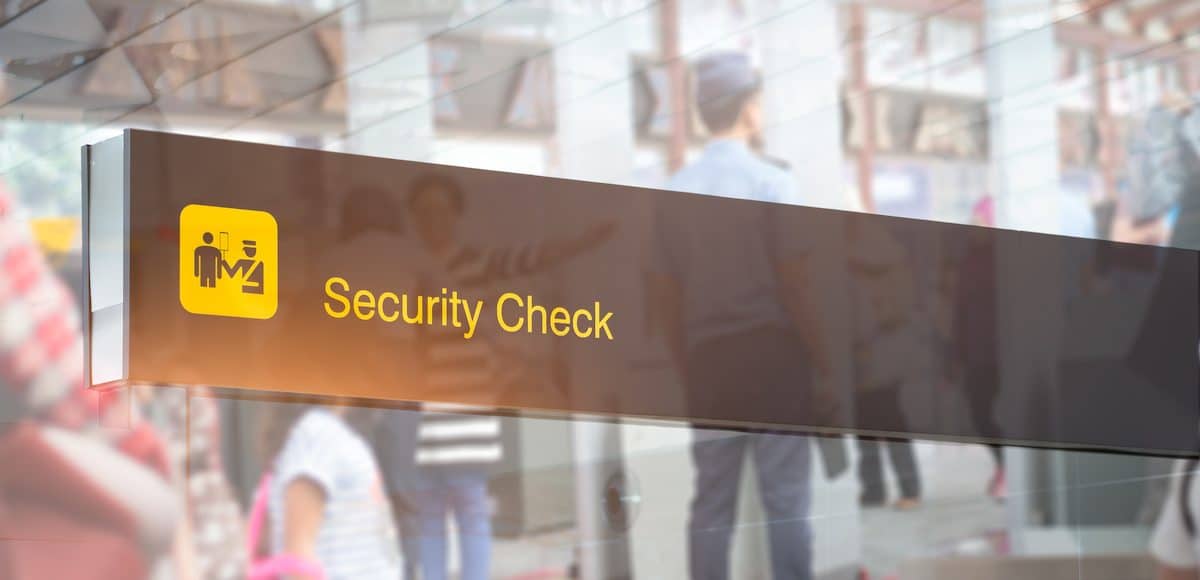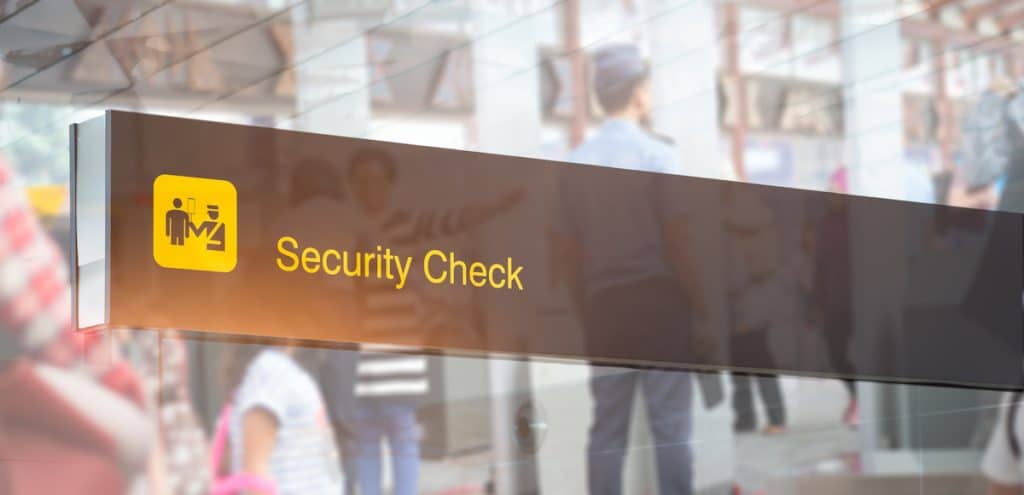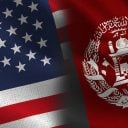

My previous columns about the Transportation Security Administration (TSA) have focused on bureaucratic inefficiency and incompetence (as well as laughable examples of “security theater”).
Today, let’s take advantage of the shutdown and focus instead on why TSA should be disbanded so that airports can use more efficient private security firms.
An article in Reason gives some important details on why privatized airport screening is the best way of making lemonade out of shutdown lemons.
…the Transportation Security Administration (TSA) reported that 10 percent of its agents were absent from their posts, up from three percent in the same time period last year. …The result has been longer wait times, closed security checkpoints… While it’s difficult to feel any sympathy at all for the professional privacy violators at the TSA… It’s also an unfortunate consequence of federalizing so much of crucial airport operations, says Baruch Feigenbaum, a transportation expert… There are already a number of airports in the country that have contracted out their passenger screenings to private companies through the TSA’s Screening Partnership Program (SPP), helping to immunize them from the effects of the shutdown. This includes San Francisco International Airport (the busiest airport to participate in the SPP program), where some 1,200 privately employed security screeners have continued to be paid despite all the budget drama in Washington. …Contracting out these services would ensure that they don’t come to a screeching halt every time the government shuts down. Putting that distance between the government and security and safety services would also improve oversight.
For all intents and purposes, the folks at Reason want to make a virtue out of necessity. The government shutdown is making air travel an even bigger hassle, so why “let a crisis go to waste” when this is a great opportunity to push for sweeping reform?
As a frequent flyer, I say Amen.
Here’s a good example. Because of my support for the Georgia Bulldogs, I have to endure the Atlanta airport several times each year. It is one of the worst airports I’ve ever experienced.
It’s so bad that the city’s politicians are exploring private security.
Atlanta Mayor Kasim Reed…said he wants to take a closer look at privatizing security screening at the Atlanta airport to address the issue of long lines. …Southwell…earlier this year sent a letter to the Transportation Security Administration, raising the idea of privatizing security screening at the Atlanta airport if long lines were not addressed. …Reed said Monday that the city has been in conversations with San Francisco International Airport, which privatized its security screening. “We’re going to explore that and see if it’s the best decision,” Reed said. “The lines are very concerning to me…. We’re going to do every single thing we can do, and it’s going to have urgency to it.”
It’s quite possible that Atlanta’s politicians are merely bluffing and that their real goal is to simply get more TSA bureaucrats, but I hope this is a serious initiative and that Atlanta escapes the TSA.
Experts who study this issue says private contractors are both more efficient and safer.
For those who want to understand the background on this issue, here are a couple of very good articles.
The first piece, from Skift, explain how we got to the current situation.
Airports could actually do something about the hated agency, and a few are weighing a radical option: firing TSA screeners and hiring private replacements. The frustration over queue times—which have topped two and three hours at airports in Atlanta, Chicago, Charlotte and Denver—has prompted new attention by airport executives to the TSA’s little-known Screening Partnership Program, in which the federal agency solicits bids for a contractor to handle airport screening. The contractors must follow the same security protocols as federal officers, with similar wages and benefits. At Phoenix Sky Harbor International Airport, …administrators are “discussing a variety of options,” including replacing the TSA with a private contractor, said Deborah Ostreicher, assistant aviation director at the airport. Sky Harbor officials have considered their TSA service “less than satisfactory for many months,” she said. The Phoenix airport is a hub for American Airlines Group Inc., which has blamed the TSA delays across the country for causing more than 70,000 passengers to miss flights so far this year ….The former general manager of Atlanta’s Hartsfield-Jackson Airport wrote a letter to the TSA in February warning that the world’s busiest airport was “conducting exhaustive research” into privatized security screening.
There are 22 airports that already have opted out.
The power to replace TSA employees with private screeners dates to the birth of the agency in 2002, shortly after the Sept. 11th terrorist attacks. Congress designated five airports at the time to offer screening by private firms as a way to compare the federal approach. Another 17 smaller airports have since joined the original five. The most recent to make the switch to private security screeners, Punta Gorda Airport in Florida, expects to finish the transition next week. San Francisco International is the largest U.S. airport with private screeners. Now other large airports are researching private-sector alternatives.
One of the benefits of privatization is that contractors have more flexibility to do a better job.
…airports that have switched to private firms say they consider the contractors more responsive and better able to adjust staffing to address traffic surges and lulls. …said Brian Sprenger, director at Bozeman Yellowstone International Airport in Montana, which began private screening in 2014. “We now have a little bit more say in ensuring that the customer service side is a little more elevated in the process.”
Though TSA is reluctant to allow more airports to escape.
Christopher Bidwell, vice president of security for Airports Council International-North America, faulted the TSA in the past for making it difficult for airports to switch to private screeners, regularly denying airports’ applications for the program. …Any airport wishing to switch must be pass a security and cost analysis by the TSA to demonstrate that hiring private contractors will not harm the agency’s budget or compromise security.
A column in City Journal adds some more historical background, noting that the failures on 9/11 were the result of government guidelines.
Even by Washington standards, the creation of the TSA was a blunder of colossal proportions. Experts from around the world warned at the time—in 2001—that federalizing airport security would be ruinously expensive, inefficient, and unsafe. Israel and many European countries had already rejected similar systems. …Democrats who controlled the Senate were especially eager to gain campaign contributions from tens of thousands of new federal employees. …Legislators and bureaucrats scapegoated the private security companies that had been screening passengers for the airlines. Citing the lapse in security on September 11… It was the federal government, not the private screeners, that set the policy allowing small knives and box cutters to be brought onto planes. Federal guidelines prevented airlines from arming pilots and reinforcing cockpit doors. The feds also stopped the private security firms from using an existing system to identify high-risk passengers, which would have singled out some of the hijackers for special screening.
Here’s some great data on the superiority of private airport screeners.
…the TSA blames its failures on lack of funding. But it’s already spending way too much, as demonstrated in a congressional study comparing TSA screeners in Los Angeles with non-TSA screeners in San Francisco, one of the few airports allowed to run its own system, contracting with a private company. If LAX switched to the San Francisco model, the study concluded, it could cut its screening costs by more than 40 percent. The San Francisco private company’s screeners received the same salary and benefits as TSA screeners, but they were so much better trained and deployed that each one processed 65 percent more passengers than a TSA screener in Los Angeles. They apparently enjoyed better working conditions, too, because they were much less likely to quit their jobs. And in tests by federal investigators, they were three times better at detecting contraband.
Unfortunately, TSA has institutional hostility to private screeners.
Those results, as well as other research showing that private screeners get better ratings from passengers and airport managers, inspired congressional Republicans to pass legislation giving more airports the option of switching to private contractors. But, as anyone could have predicted in 2001, it’s not easy to get rid of a federal monopoly, especially now that unionized screeners can intimidate local politicians—as they did in blocking an attempt to replace them at Sacramento’s airport. Even if local officials stand up to the union, they still need to get permission from the TSA.
And, as noted in the Wall Street Journal, many politicians don’t care about the private sector’s superior performance because they’re more intreested in expanding bureaucracy.
TSA runs a Screening Partnership Program, which in theory allows an airport to “opt out” of TSA and bring in a certified private security firm. In a 2011 report, the House Committee on Transportation and Infrastructure compared Los Angeles data with a private operationrunning San Francisco’s airport. A contract screener in San Fran moved through 65% more passengers than TSA employees in L.A. But only a handful of airports participate, as TSA chooses the security company and micromanages the contract. That isn’t a partnership. Congress could stipulate that an airport manage its own bidding and operations; the government would remain a safety regulator. …Congress nationalized airport screening after 9/ll, as Democrats saw a political opening to add thousands of new union workers. But after nearly a decade and a half, TSA’s legend of incompetence grows.
Sadly, growing incompetence is not matched by growing pressure for privatization.
But hopefully that will change.






